While we wait for our favorite teams and players to take the field for Spring Training, let's take a look at a hundred great players of the past who didn't quite make it to the Baseball Hall of Fame.
#100 - RF Jack Clark
Jack Clark's career output closely resembles that of Norm Cash, player #101 on our countdown. Both players were potent sluggers in a pitcher-friendly era and their near-identical statistical profile resulted in a near-identical OPS+ score. While Cash ever-so-slightly out-slugged Clark and has a batting title to his credit, Clark nudged Norm in on-base percentage and WAR, boosted by a slight lead in walks and total bases. It's enough to sneak "Jack the Ripper" into the top 100, but not enough for Cooperstown.
Cooperstown comparable: Larry Doby
Highest HOF Vote Total: 1998 BBWAA - 7 votes (1.5%)
#99 - 3B Buddy Bell
Cooperstown comparable: Alan Trammell
Highest HOF Vote Total: 1995 BBWAA - 8 votes (1.7%)
#98 - LF Bobby Veach
Bobby Veach was one of the last cuts from my All-Time Tigers team, but he makes this list thanks to a .310 batting average, 2,000+ career hits, and three RBI crowns. His .442 career slugging percentage is impressive for someone with just 64 career home runs; the two-time league leader in doubles legged out ten or more triples in ten consecutive seasons. All told, Veach accumulated 2,942 total bases, 48 wins above replacement, and a 127 OPS+ for his career. He just didn't have the counting stats or longevity of his dead ball-era peers.
Cooperstown comparable: Minnie Minoso
Highest HOF Vote Total: 1937 BBWAA - 1 vote (0.5%)
#97 - SP Vida Blue
Cooperstown comparable: Jim "Catfish" Hunter
Highest HOF Vote Total: 1993 BBWAA - 37 votes (8.7%)
#96 - LF Frank Howard
The Aaron Judge of his day, Frank Howard was a massive slugger in an era that lacked the long ball. After winning Rookie of the Year and a World Series with the Dodgers, Howard was traded to Washington, where he became the "Capitol Punisher." From 1968 to 1970 he smacked a total of 136 home runs (twice leading the AL), drove in 343 runs (leading the AL in 1970), and accumulated 979 total bases (twice leading the majors). Similar to another slugging star of the sixties, Howard has an advantage over Rocky Colavito in OPS+ but struck out more and ranks among the worst defensive outfielders ever.
Cooperstown comparable: Jim Rice
Highest HOF Vote Total: 1979 BBWAA - 6 votes (1.4%)
#95 - 3B Bob Elliott
Bob Elliott ranks among the top 30 third basemen all-time in several categories, including hits (26th), doubles (23rd), RBI (18th), and WAR (27th). A seven-time All-Star, Elliott won the 1947 NL MVP award after setting career highs in batting average, slugging percentage, RBI, and WAR. His .815 career OPS is just slightly behind Hall of Famer Paul Molitor, and his offensive WAR total of 52.3 is just half a point behind newest Hall of Famer Scott Rolen. Elliott's home run power and defense were about average for his position, ranking him slightly below other hot corner stars you'll see on this countdown.
Cooperstown comparable: Bobby Doerr
Highest HOF Vote Total: 1964 BBWAA - 4 votes (2%)
#94 - IF Hardy Richardson
Hardy Richardson played just 1,334 professional games - barely in the top thousand of all-time. The 19th-century star batted over .300 in six of his 14 seasons, led the majors in home runs twice, and scored over 120 runs in four seasons. Richardson's 1,694 career hits aren't an eye-popping total, but when you average his production over a current 162-game schedule - 206 hits, 101 RBI, 300 total bases - his place among the greats of his day becomes clearer. Hardy's OPS+ of 131 is the highest of any second baseman with over 4,000 at-bats who is not enshrined in Cooperstown.
Cooperstown comparable: Frank "Home Run" Baker
Highest HOF Vote Total: N/A
#93 - SP Hippo Vaughn
 |
source: Bored Panda/Mancave Pictures |
Jim "Hippo" Vaughn won over 400 games and struck out over 3,000 batters over his impressive career. Had he accumulated those numbers in the major leagues he'd be a surefire Hall of Famer. In a seven-year peak from 1914 to 1920, Vaughn totaled five 20-win seasons, led the league in strikeouts and innings pitched twice, and had five seasons with an ERA of 2.20 or lower. After a disastrous 1921 season, Hippo continued his career in semi-pro ball. He makes this list based on his MLB career alone, in which he won 187 games, maintained a 2.49 ERA across 2,730 innings, and won the pitching triple crown in 1918.
Cooperstown comparable: Jack Chesbro
Highest HOF Vote Total: N/A
#92 - RP Joe Nathan
Let's show some love for the closers. Joe Nathan didn't get nearly as much Cooperstown support as Billy Wagner has, but his career accomplishments aren't far behind. A six-time All-Star and 2009 Reliever of the Year, Nathan's 377 saves rank tenth all-time, and his 151 ERA+ is higher than every Hall of Fame fireman except you-know-who. His fielding-independent ERA of 3.36 is a tad high, and his 2.87 strikeout-to-walk ratio is a tad low. But Nathan's overall numbers are better than most not-quite Cooperstown closers.
Cooperstown comparable: Bruce Sutter
Highest HOF Vote Total: 2022 BBWAA - 17 votes (4.3%)
#91 - RF Rocky Colavito
A fan favorite throughout his career, particularly in Cleveland, Rocky Colavito mashed 358 home runs over an 11-year peak from 1956 to 1966. The AL Rookie of the Year runner-up in '56, Rocky finished third in MVP voting two years later and was named to nine All-Star teams. He led the league in total bases twice, posted six 100+ RBI seasons, and blasted over 40 home runs three times in four years from 1958-61. He ranks just ahead of Frank Howard on this list based on a batter batting eye and defensive metrics, though their offensive output is nearly even.
Highest HOF Vote Total: 1974 BBWAA - 2 votes (0.5%)
#90 - SP Cliff Lee
Cliff Lee struggled with control early in his career and injuries later in his career. When he was "on", he was as dominant as any 21st-century ace. The 2008 American League Cy Young winner led the majors in strikeout-to-walk ratio three times and posted MLB's lowest walks per 9 innings ratio four times. While he rarely allowed free passes, Lee did give up nearly a hit per inning over his relatively short career. He was well on his way to a fourth consecutive 200-strikeout season when his left elbow finally gave out for good in 2014.
Cooperstown comparable: Dizzy Dean
Highest HOF Vote Total: 2020 BBWAA - 2 votes (0.5%)
#89 - C Jorge Posada
A key member of the Yankees' late-1990s dynasty, Jorge Posada ranks among the greatest offensive catchers in the game's history. The five-time All-Star and five-time Silver Slugger winner managed just 1,664 career hits but made them count. Posada's home run total, doubles total, and RBI total are all top-12 among primary catchers. His .374 on-base percentage and .474 slugging percentage place him in the top ten among catchers with 1,000 career games.
Cooperstown comparable: Gabby Hartnett
Highest HOF Vote Total: 2017 BBWAA - 17 votes (3.8%)
#88 - OF/1B Al Oliver
 |
| source: The Shadow League |
Al Oliver played every outfield position and first base for the Pirates, who found a place for his potent bat in their everyday lineup despite the presence of legends like Roberto Clemente and Willie Stargell. A pure contact hitter, Oliver rarely walked and rarely struck out - resulting in a .303 lifetime batting average and a .344 on-base percentage. "Scoop" earned seven All-Star selections, three Silver Slugger awards, and won a batting title in 1982 while a member of the Montreal Expos. His 2,743 career hits place him 58th on the all-time list, in between Hall of Famers Luke Appling and Goose Goslin.
Cooperstown comparable: Goose Goslin
Highest HOF Vote Total: 1991 BBWAA - 19 votes (4.3%)
#87 - 3B Darrell Evans
Cooperstown comparable: Andre Dawson
Highest HOF Vote Total: 1995 BBWAA - 8 votes (1.7%)
#86 - SP Jim Whitney
Jim Whitney lost more games than he won over his ten-year career. He lost 30 or more games three times, including a two-year record of 30-62 in the middle of his pro career. He led the league in hits allowed twice and wild pitches three times. But!!! The 1880s ace also led the league in fielding-independent ERA twice, walked just 411 batters over nearly 3,500 innings, and led all of professional baseball in strikeout-to-walk ratio four times in five seasons from 1883 to 1887. Whitney's 56.0 career WAR is higher than HOFers Eppa Rixey, Burleigh Grimes, and Jim Kaat - all of whom tossed well over 4,000 big league innings.
Cooperstown comparable: Juan Marichal
Highest HOF Vote Total: N/A
#85 - SS Miguel Tejada
If I handed you the resume of a player who finished 15th all-time at his position in hits, 8th in doubles, 9th in RBI, and 4th in home runs, would you expect to see that resume engraved on the walls of Cooperstown? How about if I add an American League MVP, six All-Star nods, and two Silver Slugger awards? Miguel Tejada might have been underappreciated in his era - except he peaked when PEDs were prevalent. His durability and production is overshadowed by his documented use of performance-enhancers, and his lackluster postseason output - along with a .336 career on-base percentage - can also explain why Miggy received far less Hall of Fame support than other steroid-tainted stars.
Cooperstown comparable: Ryne Sandberg
Highest HOF Vote Total: 2019 - 5 votes (1.2%)
#84 - OF Jimmy Ryan
Jimmy Ryan batted .300 or higher in 11 of his 17 full seasons, though he never won a batting title. His career slash line of .308/.375/.444 stands out even among his high-average, low-power peers. In 1888 Ryan led all of baseball in hits, doubles, total bases, home runs, and slugging percentage. His counting stats - 2,513 hits, 1,643 runs scored, 1,093 RBI, 419 stolen bases - compare favorably with several Hall of Fame outfielders.
Cooperstown comparable: Jim O'Rourke
Highest HOF Vote Total: Appeared on many Veterans' Committee ballots
#83 - RF Magglio Ordonez
An unheralded star of the early aughts, Magglio Ordonez was one home run and one RBI away from posting five consecutive seasons with 30+ homers, 100+ RBI, and a .300 or better batting average. The six-time All-Star compiled over 300 total bases in a season six times and boasted a career slugging percentage of .502 - equal to that of Hall of Famer Jim Rice. Ordonez led the majors in batting average and doubles in 2007, finishing second in AL MVP voting and earning his third Silver Slugger award. His counting stats fall short of Hall standards at his corner outfield position, though his career WAR score is equal to that of a recent inductee.
Cooperstown Comparable: Enos Slaughter
Highest HOF Vote Total - 2017 BBWAA - 3 votes (0.7%)
#82 - SP Nap Rucker
Just like Jim Whitney, George Napoleon Rucker pitched for a Hall-minimum ten seasons over a hundred years ago and, like Whitney, his won-lost record is underwhelming. However I've ranked Rucker higher because he allowed fewer hits per inning, had a lower earned run average, and struck out more batters per nine innings. "Nap" never led the league in ERA or whiffs, his strikeout to walk ratio is fairly standard for starters of his era, and his Hall of Fame case is undone by his brief career as much as lack of victories. But he did lead the National League in WAR for two consecutive seasons.
Cooperstown comparable: Candy Cummings
Highest HOF Vote Total: 1942 BBWAA - 15 votes (6.4%)*
*72 names appeared on the 1942 BBWAA ballot. 45 of these players were eventually enshrined, including all of the top 30. Rucker was 31st on the list.
#81 - 3B Bill Madlock
Bill Madlock won two batting titles in his first three full seasons - and then the Cubs traded him to San Francisco. Traded for the third time in 1979, "Mad Dog" found a home in Pittsburgh and immediately helped the Bucs win a World Series that fall. He won two more batting titles before being traded again in 1985. Every third baseman with a career .305 batting average and at least 2,000 hits is in the Hall of Fame - except Madlock, who just clears both bars. Every four-time batting champion who is eligible for Cooperstown has a plaque in the hallowed halls - except Madlock.
Cooperstown comparable: George Kell
Highest HOF Vote Total: 1993 BBWAA - 19 votes (4.5%)

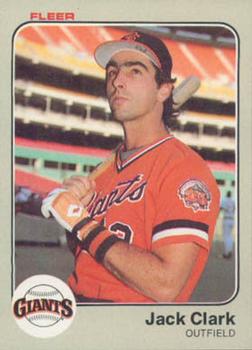

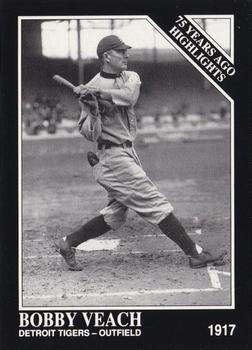
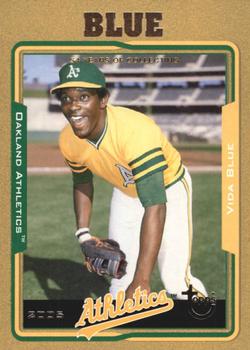

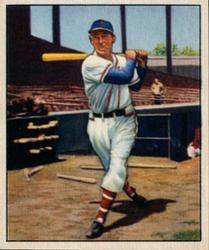
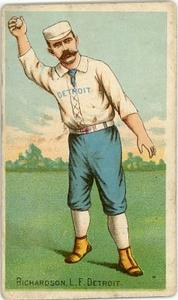

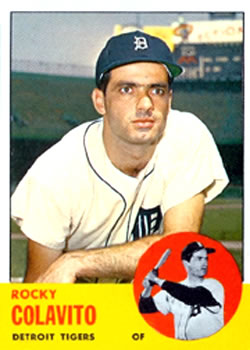

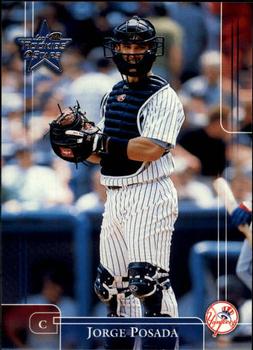
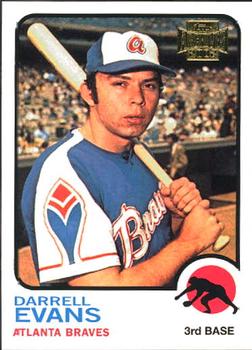

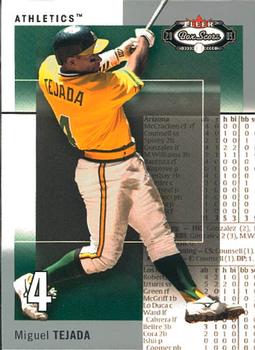
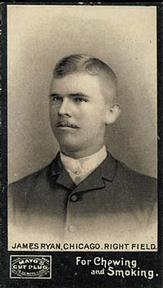
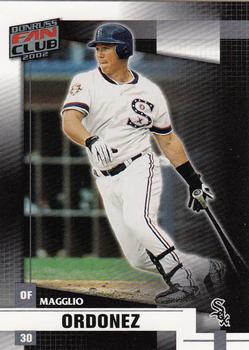



Having read this post I'm looking forward to more of the series because I'm gonna learn about a lot of older players I know nothing about, plus I love the idea of seeing a ranked list of the "not quites" and "should-be-ins." I think the "Cooperstown Comparable" is my favorite part of this so far!
ReplyDeleteVery cool overview. Looking forward to more.
ReplyDeleteThis group mostly feels like they aren't quite Hall of Famers. I do have a soft spot for Vida Blue and Bill Madlock as players I really liked as a kid. Miguel Tejada is one of three guys who never played for the Mets whom I've acquired a trifecta (rookie card, auto, and relic) of, along with Jim Rice and Aaron Nola.
ReplyDeleteI have Vida and Mags in with my PC guys.
ReplyDeleteProbably wouldn't put any of these guys in, but it's a very solid group. Like seeing some 19th century representation. Well done!
ReplyDeleteInteresting to see Joe Nathan on the list. He was a great closer in his prime. That AJ Pierzynski trade was a boon for the Twins.
ReplyDeleteMadlock and Oliver have been favorites since I was a kid. I wouldn't have a problem with them making the Hall or several of the other ones, although I admit I know little on a few (a couple I never heard of).
ReplyDeleteBlue, Madlock, Bell, and Clark were all guys I rooted for back in the 80's. I'm a small hall kind of guy, so I'm not sure I'd put any of them in. But Madlock is worthy of a closer look with his 4 batting titles and career .305 batting average.
ReplyDeleteThe four batting titles alone should get Madlock a spot in Cooperstown - would love to see him get in. Magglio Ordonez was definitely one of the more underrated players of his generation - even as a Chicagoan myself, I sometimes forget how good of a player he was.
ReplyDeleteA very good and interesting read, very nicely done!
ReplyDeleteBuddy Bell and Al Oliver's numbers surprised me the most. I'm also surprised that Bill Madlock has never received more than 4.5% of the vote. Looking forward to the next episode! (PS: Great introductory paragraphs.)
ReplyDeleteRight off the bat I had my first "Wait..what?" moment. Jack Clark better than Steve Garvey? No way...until I did the comparison on baseball-reference.com. Further proof that a trophy case of awards doesn't always measure up to on-field performance!
ReplyDeleteI didn't realize that Buddy Bell had been such a stud.
ReplyDeleteI would think Madlock would eventually make it in. Looking forward to the rest of the posts!
ReplyDelete